
18 minute read
ty: Rabbi Benny Berlin of the BACH 58
There are hundreds of cars that pass over the Atlantic Beach Bridge every day. In the summertime, the cars line up on the 878 to pay the toll, as passengers look forward to their weekends at the shore.
Summer, for many, means catching the sun’s rays and the ocean’s waves. For some, though, the beach is their home. This week, we spoke with two rabbis in the Long Beach community to hear more about the frum community nestled near the shore.
Challah, Crockpots, and Lots of Creativity

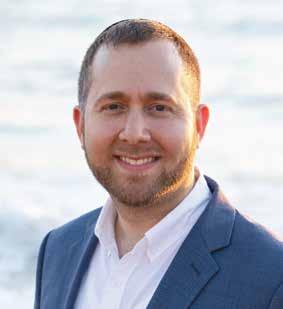


Rabbi Benny Berlin of the BACH Jewish Center in Long Beach Talks about Leading His Shul During This Time
BY SUSAN SCHWAMM
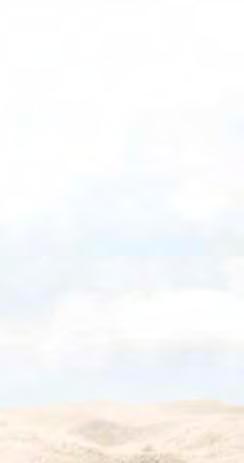
Rabbi Berlin, you came into your position as rabbi of the BACH in a very unusual time.
Yes. My first official day on the “job” was June 1, so yes, it was truly unusual. At the time, it was before we were going to be having minyanim altogether at the synagogue. Then, on June 3, we had our first minyan – that was held outside, limited to just 10. Later, as restrictions were eased a bit, we were allowed to have more people attend minyanim. Then we slowly moved inside for some minyan days. We’re still, obviously, wearing masks and being socially distant at minyanim.
Being a rabbi mid-pandemic has certainly not been what I would have expected, but in some ways, it actually has made me a better rabbi and a better community member. It’s taught me how to think outside the box to create a community when we can’t be physically together. But my motto has been – and I’ve repeated this constantly to the congregation – that we’re physically distant, but we’re socially together.

How have you been able to achieve that?
One of the things that’s been on my mind right now – because we were doing this recently – was that when I thought about being a rabbi, I was looking forward to a community-wide havdalah. The same way we usher-in Shabbos together, kabbalas Shabbos, I wanted to be able to do a community havdalah. I really enjoyed doing that when I was a rabbi on a college campus. I enjoyed everyone singing together and enjoying together. Because of the pandemic, we weren’t able to host a community-wide havdalah. Instead, we had to be creative. Now, we have a community-wide virtual havdalah on Facebook Live and Instagram Live. By the second week, we had more than 375 people joining in, so that’s been really successful. Even though we can’t be together during havdalah, people feel really connected.

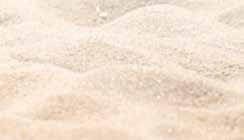
Wow, that’s really nice.
It’s beautiful. Just so you understand, our shul has around 100 families










in it or more. So, two-thirds of people joining are not even in the shul. In that sense, the pandemic has brought the broader Jewish community together. It’s not just about being focused on the immediate vicinity of who’s on our block. Any Jew from any community can join us for havdalah at the BACH. That’s really incredible.
My wife is also doing a new monthly challah bake series on Zoom. What’s interesting is that the women who are joining are not just in the community; they’re from around the country. All of a sudden, it’s, again, physically distant but socially together.
Aside from the “virtual creativity” we have had to employ, we also have what I call “in-person” creativity. BACH was always the go-to place for all the youths in the community for different youth-based activities. Now, we can’t have ordinary events, so we’ve had to be creative. One day, we met on the basketball court and drew huge circles for every family to sit in, which were six feet apart, and we had an amazing magic show. Trust me, I was davening that it wouldn’t rain that day. We are doing an animal show too this way.
We’ve also been doing the shul kiddush to-go. We give out individually wrapped box of tin of cholents and potato kugel and a bottle of grape juice. As we hand it out, we’re able to The Berlins delivering challah to the Broder family connect and say to people, “Have a great Shabbos. It’s great to see you.” I’m excited to say that we’ve already had two young families move into the
As a rabbi, it’s all about the bonds that you make with the congregants. community. And four are going to be moving in over the next few weeks, You mourn together. You rejoice together. You daven together. You eat meals which is very exciting. together. And those bonds don’t break. During these times, my wife and I That’s wonderful. Why do you think that those families have “It’s all about the bonds that you made the decision to move to Long Beach? Well, I think the impetus for them moving to Long Beach is that there make with the congregants.” are some people who need that out-of-town feel. They need that kind of warmth. They want to feel like they come to a place and feel like they matter, they’re not going to fall through the cracks. But they also want to be close to the Jewish amenities. People are hearing about Long Beach that it has made a list of people who were elderly or alone, and we make sure to call a lot to offer and you can get the best of both worlds. them and connect with them so they know that they’re not alone.
When we first came to town, we baked 100 challahs and dropped them I’m sure your attendance goes up in the summer. off at all our congregants’ homes. We sat outside, six feet apart, wearing Yes. When we have these beach communities, a lot of time, the summer masks, and chatted. Sure, it’s not what I envisioned. I envisioned the welis packed. And then, in the fall and the winter, people go to their other descome barbeques and seeing everyone at the shul and mingling during kidtinations. But my vision is to make this a full-year-round vibrant commudush. But that was not how it panned nity and not just a summer community. out. And we had to be creative about it. Of course, the summer is where it’s at in terms of the beach, but our butcher It’s nice to see how you were and bakery and all the other ameniable to be flexible and creative ties, they don’t just go away because and keep connected with all the summer ends. Marvel ice cream your members. Tell me what sets is now under the Vaad; the acai shop the BACH apart from other shuls now offers pizza because every Jewish in the community. community needs a pizza shop! We
I like to say that the BACH Jewish have Country Boy Bakery and Life’s a Center is one of Long Island’s most Bagel – we have all the food groups. prestigious and oldest synagogues. It’s We also have an eruv, a mikveh, and one of Long Island’s best-kept secrets lots of preschools, too. The older kids because you have families joining us go across the bridge to the schools like from Long Beach, Lido, Atlantic Beach, Darchei or HALB or TAG or BBY. There and Island Park. We offer some great are so many options. activities for both youth and adults. Some members may attend other synYou and your wife were the agogues on Shabbos, but they’ll come co-directors of the OU’s Jewish to us for Sunday events or for a shiur. Learning Initiative on Campus
Long Beach, in general, is one of (OU-JLIC) at Queens College for the best-kept secrets because it’s got the past two years. How is it bethe out-of-town feel but is within close ing a family on campus – it must proximity to Jewish amenities. In fact, Rabbi Benny and Rebbetzin Sara with their son have not been easy to live there
with your children and having to be available 24/7?
I have to say that, at Queens College, it wasn’t overwhelming because Queens is a commuter school and students don’t live on-campus. We were trying to build a community but we were able to control the hours and we didn’t have students in our home 24/7. There were set boundaries. And we loved it.
We loved the opportunity to be there for college students at such an important window. It’s such an important time in people’s lives when they’re in college, when their personalities haven’t been crystalized just yet. They’re independent and are searching for meaning. It was very special for us to be involved in that stage of development. I think that being a campus rabbi was great practice for being a rabbi in a thriving, vibrant community.
In fact, when the pandemic started, at the beginning of March, we had a kabbalas Shabbos on Zoom (which took place before Shabbos started) and we invited the Queens College students as well. There were 2,000 people on the Zoom – it was packed – you can even see the video on YouTube. We had Simcha Leiner singing, and it was really very special.
How is your wife, Rebbetzin Sara, involved in the shul?
She’s really been connecting with the community. I mentioned that she does the challah bake on Zoom, and she calls the community members to keep in touch. She also makes the cholent for the kiddush to-go every week, and it’s amazing.
That’s a big job. How many crockpots does she have? TJH Speaks with Rabbi Binyamin Silver of Young Israel of Long Beach BY SUSAN SCHWAMM Rabbi Silver, you’re going to be taking the position of rabbi at Young Israel of Long Beach in the next few weeks but it’s not started.
I’m originally from Memphis. My mother is from Memphis. My grandmother is from Memphis. My parents had always wanted to make aliyah,
We actually have three crockpots. And they’re scraped to the bottom – people love her cholent.
Once this whole era is behind us, what are your goals or your dreams of how to just lead your congregation?
You’re saying, pretending the pandemic doesn’t exist and we’re truly past it?
Yes. Pretend it doesn’t exist, in our dreams, in our hopes, in the near future. What is your vision for the BACH?
I want to initiate vibrant Shabbos and evening programming. Classes for adults, the beginners’ learning classes, the wine and cheese events, singles’ events, children cook-offs, Thursday night Mishnayos for teens, early child learning, communal Shabbos lunches, summer barbecues, a weekly women’s shiur, a carnival… All those types of things, vibrant programming. I want to bring in big names and speakers to bring in crowds to the shul. I’d love to host high school Shabbatons so high schools could come in and see what goes on at the shul and in the community. I want to host our community families for Shabbos meals – I feel that it’s so important that every congregant comes to our house at least once to partake in a Shabbos meal.
Despite the pandemic, have you and your wife and your son been able to enjoy living in Long Beach and the beautiful boardwalk?
It’s beautiful. We love it. The air is clean. The boardwalk, walking on there is just so serene. I’m working very hard but then, when I walk on that boardwalk, it doesn’t feel like I’m working. There’s something very soothing about the sound of the ocean.
I would love for people to visit us here – obviously, safely in a social distanced manner. But if they can’t come personally, they can always visit us virtually and look us up on Facebook and Instagram and partake in many of our streaming events. Please join us as we say goodbye to Shabbos with havdalah at 9:30p.m. on Shabbos night on Facebook Live and Instagram
Perpetuating Rabbi Wakslak’s Legacy
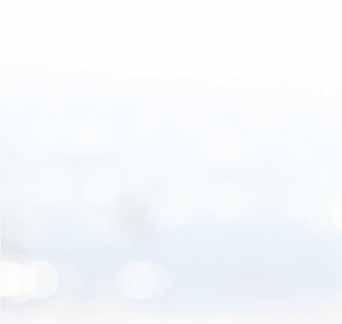
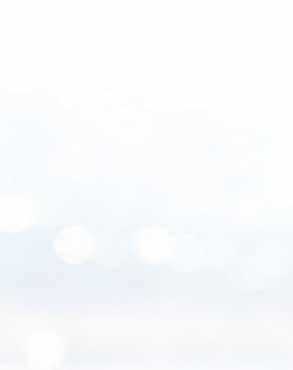

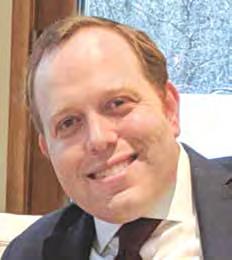
the first time you’ve lived in Long Beach. Tell us how your story
Live. I’d love for them to connect with us.
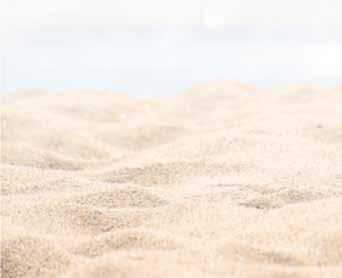
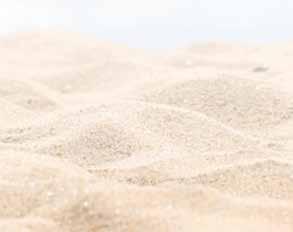
so when I was going into high school, we actually moved to Israel. I spent my high school years in Israel and then I came back and went to Ner Yisroel in Baltimore for many years. Eventually, I moved to New York and met Rabbi Wakslak around 11 years ago. At the time, I was interested in getting involved in rabbanus. I was single, and I didn’t have semicha – you can imagine that it wasn’t easy getting into that “field,” so to speak,
considering my lack of credentials. Rabbi Wakslak, z”l, was wonderful and so helpful.
I met Rabbi Wakslak through the National Council of Young Israel. He told me, “You know what? Let me take a chance. Why don’t you come down to Long Beach and make a few speeches and I’ll let you know what I think.” I would come down, one and off, for about two years. He was so encouraging, and I eventually moved to Long Beach. I was still single at the time, and I had started law school. I lived in Long Beach for two years and worked as an assistant rabbi. Then I got married and moved down to Silver Spring, where I’m currently living together with my wife. We’ve been here around seven years.

Where is your wife from?
My wife is from Minneapolis and South Africa. She moved with her family to Minneapolis when she was 10 from Johannesburg.
Here, in Silver Spring, there’s a large shul here, about 500 members. The task we were given was to attract and create a place for young professionals and singles within the broader shul. We were very successful. We founded a separate minyan – to an extent, a separate community – of younger people. The age range was around 25- to 35-year-olds. I’m also a tax lawyer, so the position in the shul is a part-time position.
When Rabbi Wakslak passed away in Long Beach a few months ago, I had been in touch with members of the community. It was very difficult for them, obviously – he passed away so suddenly and was the heart and soul of the community. They didn’t have anybody they could turn to. And then, when they started looking for a new rabbi at Young Israel of Long Beach, I, quote-unquote, threw my hat into the ring. My experience in building a community of young professionals in the greater Washington area over the past few years will serve me well in Long Beach, as I hope to replicate it there.
We are still living in Silver Spring now, but will iy”H be moving to Long Beach before Rosh Hashana.
The Young Israel is looking to continue Rabbi Wakslak’s legacy, and those are some very big shoes to fill. Rabbi Wakslak really built the community. But they are also interested in growing the community. That’s something I’m very excited about. Long Beach is a beautiful place. For people who are looking for a more laid-back, out-of-town vibe and don’t want to live in the center of the Five Towns, Long Beach is a great community. Oh, and then there’s the beach, obviously, which is great, too.
What’s the general makeup of the YILB community?
At this point in time, it’s a slightly older population. But there is an element of younger people who have moved in and are continuing to move in. Now, because of corona, people are interested in moving out of the city and into more suburban areas. I would say the makeup now is probably 60% older, and then there’s about 40% on the other end. One of our key goals is we really want to create a younger, dynamic community.
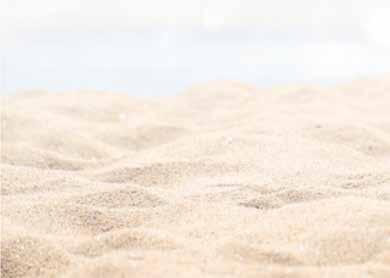
What’s the connection between YILB and the other shuls in the community?
When Rabbi Wakslak passed away, there was a huge void, a huge lack of leadership. He was there for 35 years. The Vaad was run by Rabbi Wakslak. I know that Rabbi Biegeleisen has been stepping up to the plate. He’s been helping to organize and keep things up to par. The kashrus is great. I look forward to being involved in the eiruv and in kashrus when I start my position.
There’s a great deal of collaboration between the different shuls in the community, which is wonderful.
You worked with Rabbi Wakslak as assistant rabbi for four years. What lessons did you learn from Rabbi Wakslak in that position and what will you be taking forward with you?
I learned a tremendous amount. To a large extent, he heavily influenced me in terms of my career trajectory. He was a model of a rav who could be engaged and involved. He had a PhD in psychology, he was the clinical director of HASC, and he was able to maintain that while still being a rabbi, still building a community. That, to me, was a breath of fresh air. It was something that I saw and said to myself, “OK, I can model my life on that.” It’s largely as a result of that, that I pursued rabbanus and a legal career at the same time. I truly owe him a huge debt of gratitude.
In terms of lessons, there was so much to learn from him. When I was assistant rabbi, I basically ate at his house around two or three times a month. We’re talking about a man who used to get up early because he wanted to ensure that there were kosher establishments in the area. Pretty much on his own dime, he would get up at 5, 5:30 in the morning to work on the kashrus. When the Vaad had to figure out the logistics after Rabbi Wakslak passed away, they realized that he wasn’t charging certain stores – he was doing it all out of his own pocket.
That’s amazing.
It really is unbelievable. And he did the same with the shul for many years. He was the largest contributor to the Young Israel in terms of size and in terms of billing. He spent out of his own pocket to fund so many things.
One lesson that I found very enlightening – and I don’t want to get into specifics – but years ago, there was one particular incident, and something happened at the shul, and I asked him, “Are you comfortable with that?” And you know what he answered me? He said, “You know, a rabbi doesn’t always have to see everything. You have to pick your battles. No, I’m not particularly comfortable but there are far more important battles than this and it’s not one that I’m willing to wage.” And that, to me, was a very big lesson. It was a leadership lesson – what’s important, what’s not. Don’t waste time on the small things, keep your eye on the bigger picture, and so on.

Let’s talk about living in a beach town. I know that you’re not living there yet but you did spend years there as assistant rabbi.
Well, for some people, it’s a huge draw and they really like living near the beach. For others, it’s a huge deterrent. So it really depends on each person. There’s a certain vibe which is not for everybody, but it’s generally much more relaxed and very clean and beautiful.
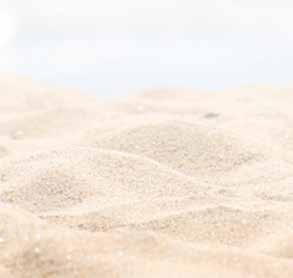
Is your wife going to be involved in the shul community?
Absolutely. My wife is a fertility nurse, so she will be a huge resource to the community. She’s been involved with the mikvah in Silver Spring and will definitely be involved in Long Beach as well. Because of her expertise, she’s helped a lot of women during difficult and trying circumstances, and I hope she can continue to help other women. We are also blessed with two boys, ages 5 and 1.
We’re really looking forward to growing the Long Beach community. What excites me about Long Beach is that it’s a great place with a lot of potential. I want to show people that it’s a viable alternative and to really put it on the map. I can’t wait to start connecting and energizing the community.










